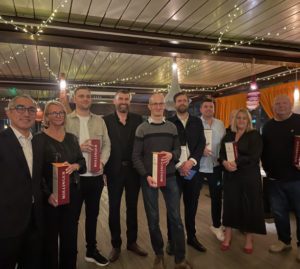Blogs from OneFamily's Leadership team
Read thought-provoking blogs from the senior team at OneFamily. We discuss the issues that affect your personal finances, your rights and what we're doing to positively impact our communities.
OneFamily Group CEO, Jim Islam, reflects on 2024 and how global changes and challenges are likely to impact us all in 2025.
Self-employed people are much less likely to have life insurance than those with salaried jobs. So how can financial institutions help?
CEO, Jim Islam, discusses the huge impact AI is likely to have on the way we live and work, and how it’s being used at OneFamily.
What role should the financial sector play in responding to the climate crisis? CEO Jim Islam discusses OneFamily’s efforts.
As the gap between the rich and poor grows, what can financial services be doing to reduce financial inequality?
Beagle Street’s Head of Partnerships and Distribution, Mark Mullaney, explains how advisers help homeowners benefit from life insurance.
Managing Director, Beth Tait, explores our recent research which showed a lack of financial understanding among teenagers.
Ryan Griffin, Director of Protection at insurer Beagle Street, discusses what must be done to help young adults build financial resilience.
Jackie Davies, Customer Operations Director, discusses the impact of rising costs on young people, how it’s stopping them from achieving ‘traditional’ life goals and what financial services companies can do to help.
Philippa reflects on how having a diverse workforce makes a company more attractive to potential employees.










